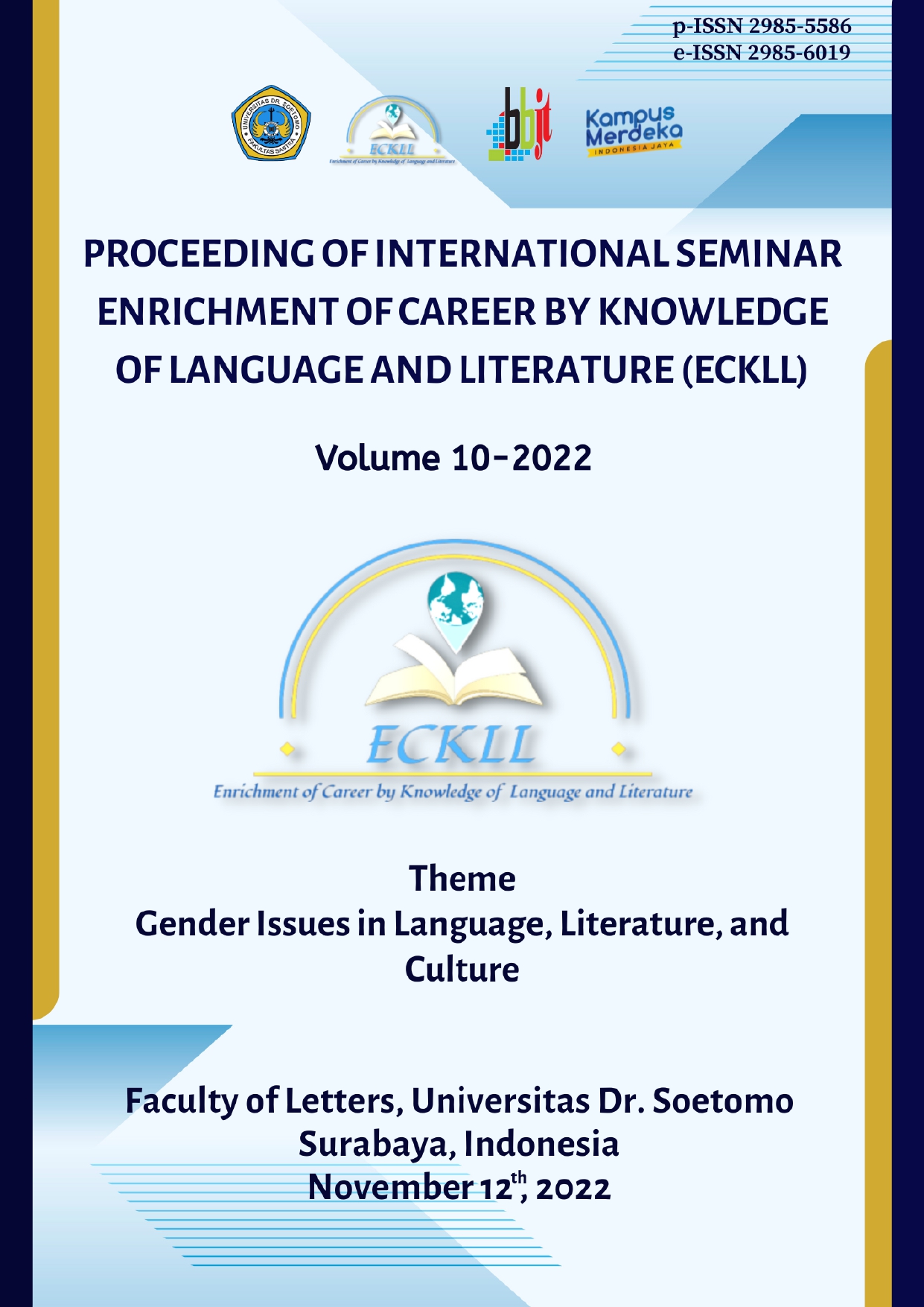The Ambivalent Sexism as Bolstered on Richard Russo’s The Whore Child
 Abstract views: 101
,
Abstract views: 101
,
 PDF downloads: 132
PDF downloads: 132
Abstract
Matters of sexuality push literature to imply gender ideas. Ambivalent sexism accentuates
hostile and benevolent ones stated by Peter Glick and Susan Fiske. The Whore Child is a
short story written by Richard Russo in 2002 that tells Sister Ursula, a Catholic sister,
who is labelled as a bastard child. She is bullied by her superiors but their deeds shape
her identity to go beyond any negativity. Then, how is ambivalent sexism bolstered on
Richard Russo’s The Whore Child? Through qualitative method on cultural studies, this
paper underlines how sexism degenerates and regenerates identities. Sister Ursula tries
to go deeper to her own bad memories while asserting any positivity through narrative
writing gathered in the class she follows. In conclusion, sexism is ambivalent since it
follows matters of being good and bad throughout understanding of sexual condition of
society. Reflection upon any stereotype could be investigated further by understanding
ideas of sexual attributes to both man and woman.
Keywords: Ambivalent Sexism; Peter Glick; Richard Russo; Susan Fiske; The Whore
Child







